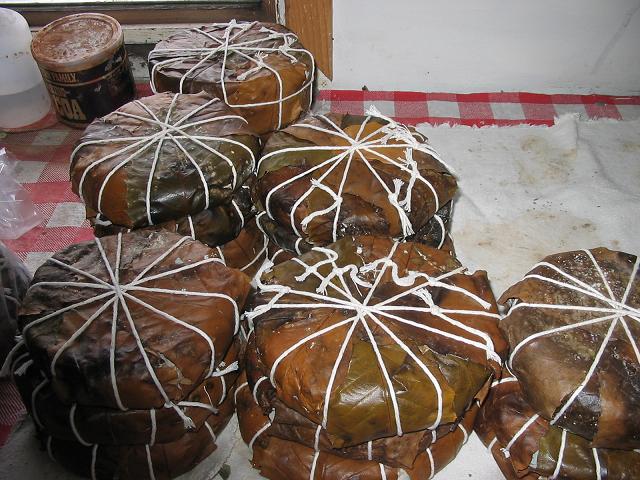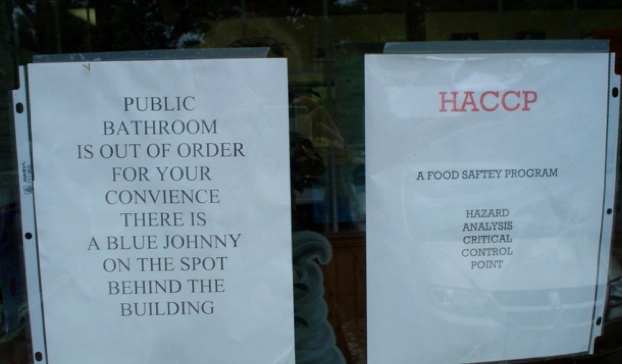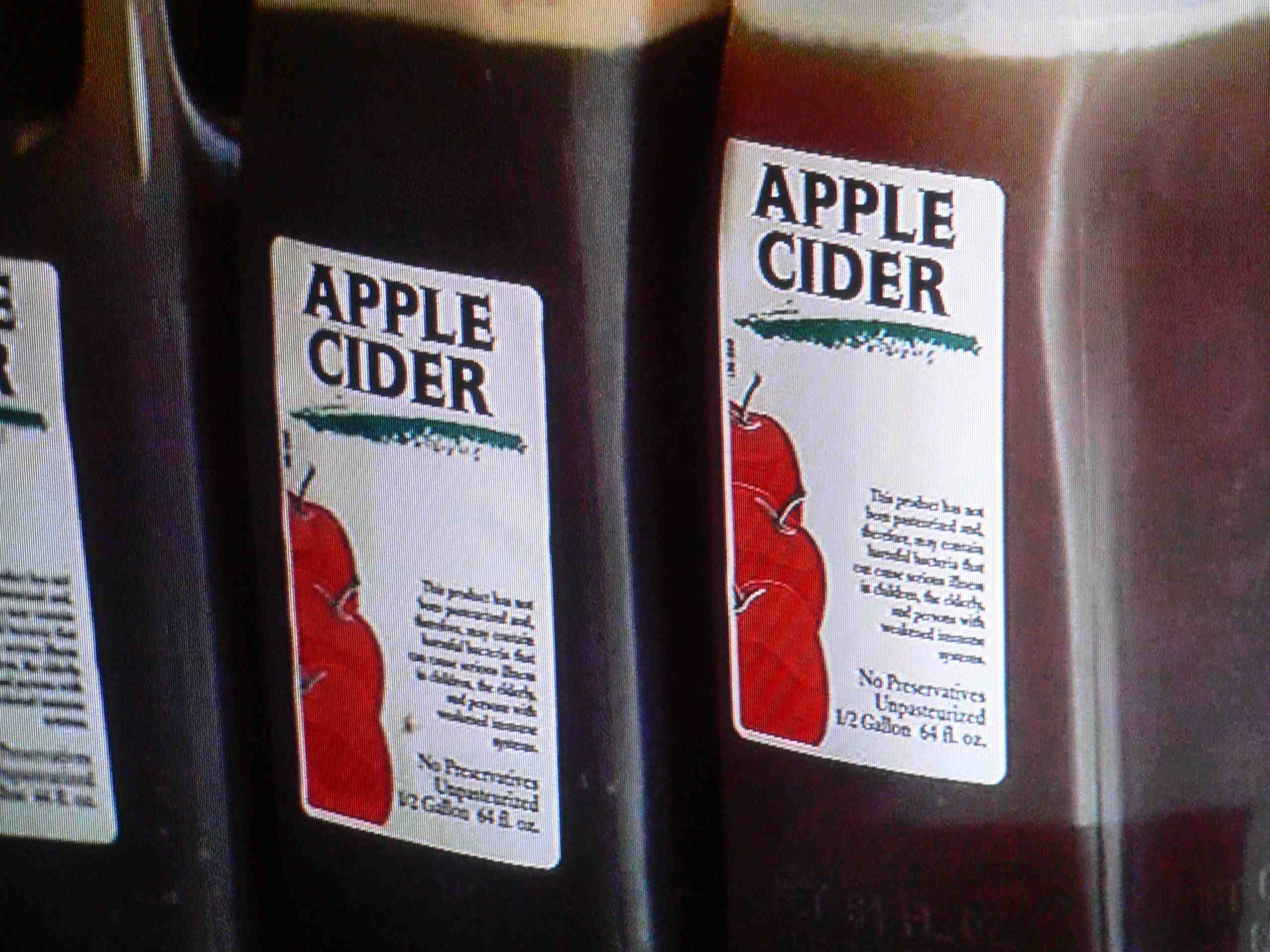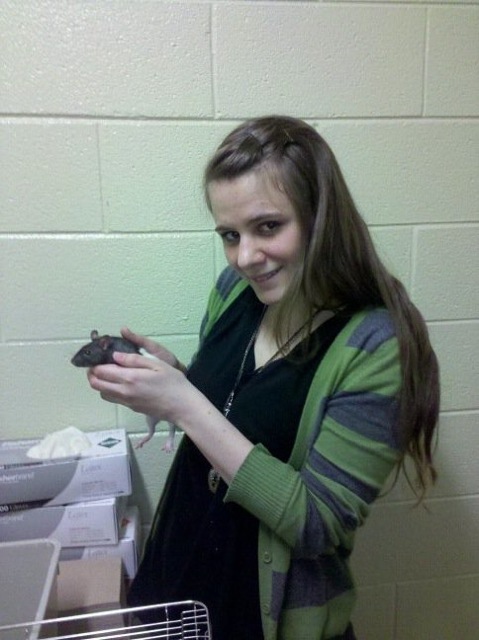It’s the phrase every food safety type has heard; experienced investigators will convey their disdain with a wry smile, rather than the full eye-rolling and gnashing of rookie teeth: “I’ve been making cheese (substitute your favorite food) this way for 30 years and I’ve never made anyone sick.
That’s the line Oroville, Washington, farmer Sally Jackson told a state inspector a few weeks ago as preliminary evidence linked Sally’s cheese  to an E. coli O157:H7 outbreak.
to an E. coli O157:H7 outbreak.
The Seattle Times reports this morning that over the past week, Jackson learned that eight cases of E. coli illness are likely linked with her products. On Friday, she announced a recall and is cooperating with government agencies.
It is the second time in two months that an artisan cheesemaker in Washington was connected with a bacteria that causes foodborne illnesses, though the reaction of the two cheesemakers could not have been more different.
Inspectors found Listeria monocytogenes in cheese made by the Estrella Family Creamery, and also repeatedly identified the bacteria in swabs of its Montesano facility, yet that Grays Harbor County dairy refused a request to recall its product. In October, the Food and Drug Administration obtained a court order forcing it to shut down. The creamery is battling the court action.
To her credit, Jackson said, "I do not want to be associated with their fight. The bottom line is, I don’t want to make anybody else sick."
Four cases of E. coli O157 came to the state Health Department’s attention in the fall, including the case of one woman who was briefly hospitalized. Laboratory tests confirmed the four were linked to each other. Four additional E. coli cases in Oregon, Minnesota and Vermont also were linked to the Washington outbreak via laboratory tests.
According to the state Department of Agriculture, one unopened cheese wheel tested positive for E. coli. Investigators are awaiting the results  from additional lab tests that will compare the strain of E. coli from the illnesses with that found in the cheese.
from additional lab tests that will compare the strain of E. coli from the illnesses with that found in the cheese.
For years, Jackson operated with few problems, however in the last year, inspectors have noted several violations at her facility, including finding that she did not sanitize equipment after use. She has worked to fix the problems.
She and a part-time helper milk 40 sheep, 12 goats and a cow named Renata. They sell to high-end restaurants, as well as retail stores across the country, and the cheeses are distinctively wrapped in grape leaves from neighbors’ farms.
Over the years, her products have been served in most Seattle fine-dining establishments, including Douglas’ Palace Kitchen. Gourmets rave about the quality, so news of the problem and the listeria issue at Estrella came as a shock.
Get over it. Fancy food doesn’t mean safe food.

.jpg) family’s organic dairy, Rosecrest Farm, in Chehalis, Wash. State inspectors told her the Swiss cheese she had labored over for months was contaminated with listeria.
family’s organic dairy, Rosecrest Farm, in Chehalis, Wash. State inspectors told her the Swiss cheese she had labored over for months was contaminated with listeria..jpg) below; thanks Carl).
below; thanks Carl). asked: "Did you serve the cider heated because you heard about other outbreaks and were concerned about liability?"
asked: "Did you serve the cider heated because you heard about other outbreaks and were concerned about liability?" Sunday Night Football broadcast crew paid homage to fall in Wisconsin with apple cider.
Sunday Night Football broadcast crew paid homage to fall in Wisconsin with apple cider. details about his dairy operation that is under a bitterly contested impoundment order.
details about his dairy operation that is under a bitterly contested impoundment order..jpg) Samples of the dairy’s unpasteurized milk tested positive for the strains of Campylobacter and E. coli that have now sickened 30 people, including two children who are hospitalized.
Samples of the dairy’s unpasteurized milk tested positive for the strains of Campylobacter and E. coli that have now sickened 30 people, including two children who are hospitalized. .jpeg) Samples are taken monthly by the State
Samples are taken monthly by the State Two children who drank goat milk from the Billy Goat Dairy required hospitalization, Boulder County Public Health reported Wednesday.
Two children who drank goat milk from the Billy Goat Dairy required hospitalization, Boulder County Public Health reported Wednesday..jpg) Kansas State. She was born and raised in Paraguay (that’s in South America, not Hawaii) and has been working with Powell and the barfblog gang for a couple of years.
Kansas State. She was born and raised in Paraguay (that’s in South America, not Hawaii) and has been working with Powell and the barfblog gang for a couple of years. coli O157:H7 and sickened people
coli O157:H7 and sickened people